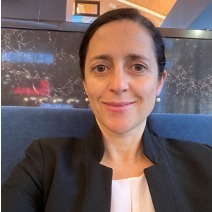Speakers & Moderators 
Open Geospatial Data Lead, Amazon Web Services
Joe Flasher is the Open Geospatial Data Lead at Amazon Web Services helping organizations most effectively make data available for analysis in the cloud. The AWS open data program has democratized access to petabytes of data, including satellite imagery, genomic data, and data used...
Read More →
Amazon Sustainability Data Initiative (ASDI) Lead, Amazon
Dr. Ana Pinheiro Privette is a senior program manager with Amazon's Sustainability group and she leads the Amazon Sustainability Data Initiative (ASDI), a Tech-for-Good program that seeks to leverage Amazon’s scale, technology, and infrastructure to help create global innovation...
Read More →
Tuesday July 17, 2018 9:30am - 11:00am PDT
Pima
Pima,
Workshop
- Subject Jump In, Deep Dive
- Remote Participation Link https://global.gotomeeting.com/join/752150301
- Remote Participation Access Code 752-150-301
- Remote Participation Phone # (646) 749-3129 More phone numbers Australia: +61 2 9087 3604 Austria: +43 7 2081 5427 Belgium: +32 28 93 7018 Canada: +1 (647) 497-9391 Denmark: +45 32 72 03 82 Finland: +358 942 72 1060 France: +33 170 950 594 Germany: +49 692 5736 7317 Ireland: +353 16 572 651 Italy: +39 0 247 92 13 01 Netherlands: +31 202 251 017 New Zealand: +64 9 280 6302 Norway: +47 21 93 37 51 Spain: +34 932 75 2004 Sweden: +46 853 527 827 Switzerland: +41 435 5015 61 United Kingdom: +44 20 3713 5028
- Tags Cloud Computing, Data Analytics

